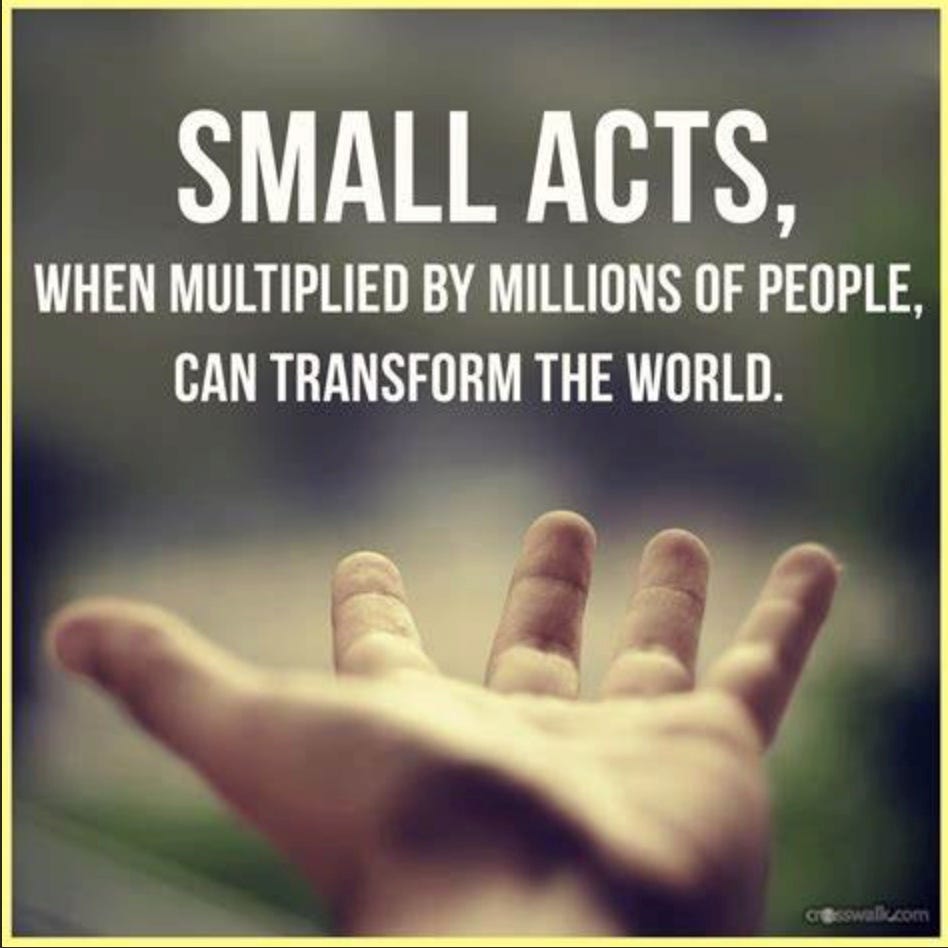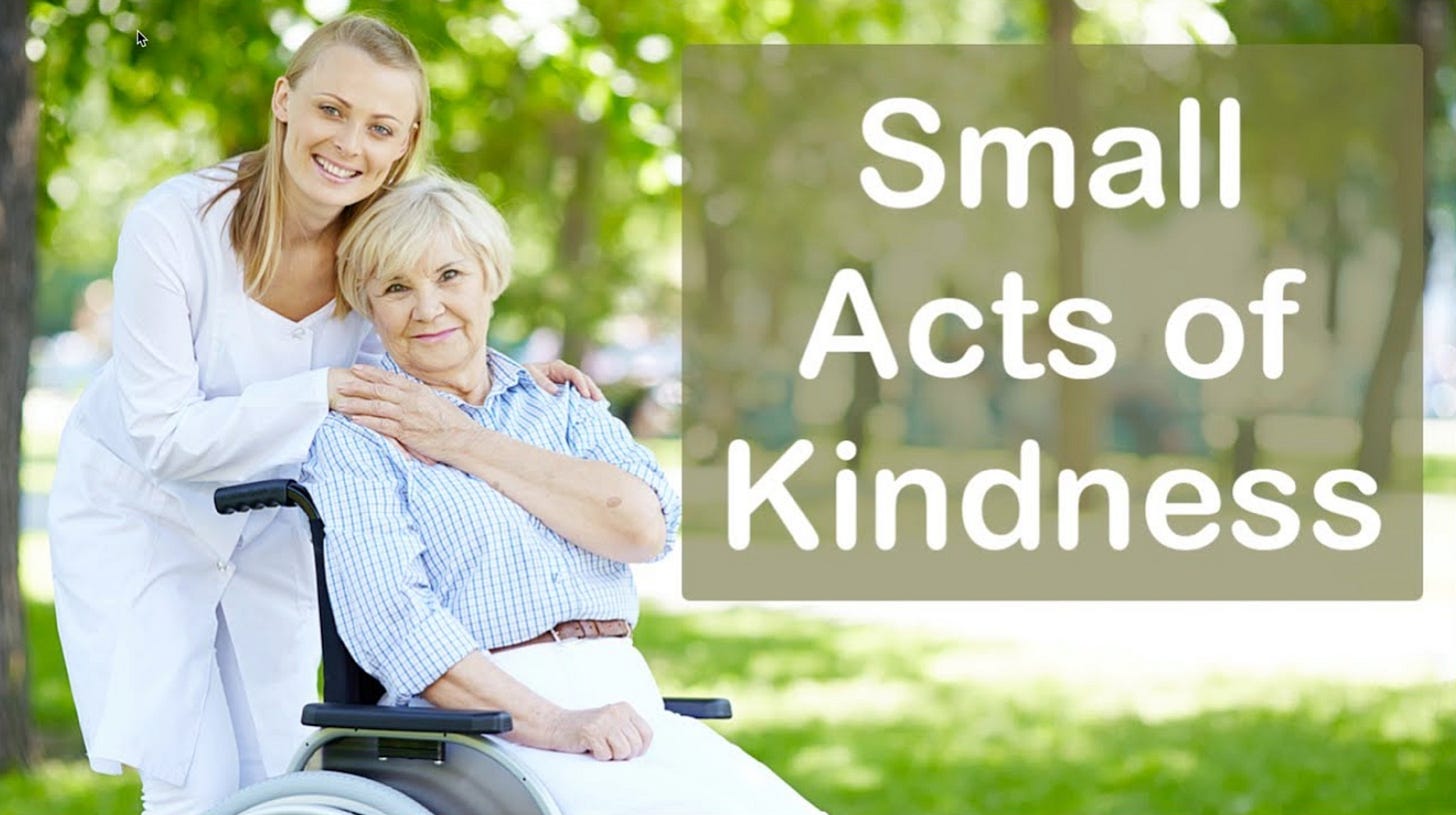The Power of One: Transforming Communities Through Civic Engagement
We Can All Make a Difference In Our Communities by Engaging In That Work Together
The Power of One: Transforming Communities Through Civic Engagement
The Myth of Powerlessness
"But I am only one person, what can I do to make a difference?" This refrain echoes across communities whenever the call for civic action is raised. It reflects a sense of helplessness in the face of large societal challenges—inequality, injustice, environmental degradation, or political dysfunction. My response is simple: "Look around you. Millions of individuals are making a difference every day. Be one of them."
Civic engagement is not reserved for political activists or public officials. It belongs to everyone. Every act that contributes to making a community healthier, more equitable, more just, more prosperous, safer, and better is civic engagement. Whether large or small, every contribution matters. And when millions of these individual acts combine, they create the very fabric of a vibrant and flourishing society.
The Many Faces of Civic Engagement
Too often, civic engagement is narrowly defined as political activity—voting, campaigning, or lobbying. While these are important, they represent only a fraction of the ways individuals can engage with their communities.
Volunteering: From serving meals at a local shelter to tutoring students after school, volunteering addresses immediate community needs while fostering human connection.
Mutual Aid: Informal networks where neighbors help neighbors—sharing childcare, running errands for the elderly, or pooling resources—embody grassroots civic spirit.
Community Improvement Projects: Organizing park cleanups, starting a community garden, or launching a recycling program all enhance the communal environment.
Support for Local Businesses and Arts: Shopping locally or attending a community theater production or concert helps sustain the economic and cultural lifeblood of a neighborhood.
By broadening our understanding of civic engagement, we open the door for everyone to participate in building the world they want to see.
The Ripple Effect: Small Acts, Big Change
One of the most pernicious myths is that individual actions are too small to matter. History tells a different story. Movements for civil rights, environmental protection, and social justice began with individuals who refused to believe their voices were insignificant.
Consider the cumulative power of small acts:
A single person starts a neighborhood watch program, leading to a drop in crime.
A teacher starts a recycling initiative in their school, sparking district-wide environmental reforms.
A teenager begins a petition for safer pedestrian crossings, leading to city council action.
Each of these starts with one person deciding to act. Their courage and initiative inspire others, creating a ripple effect that transforms entire communities.
Civic Engagement as a Habit, Not a Heroic Act
Another barrier to engagement is the belief that making a difference requires grand gestures or extraordinary sacrifices. In reality, civic engagement thrives when it becomes a regular part of daily life.
Routine Volunteering: Committing even one hour a week to a cause accumulates to over 50 hours a year.
Informed Citizenship: Staying aware of local issues and discussing them with friends and family builds a culture of civic awareness.
Mindful Consumption: Supporting ethical businesses and reducing waste are daily decisions that influence broader market and environmental trends.
By embedding engagement into our routines, we ensure sustained and meaningful impact without overwhelming ourselves.
Building Resilient, Inclusive Communities
Civic engagement does more than address immediate needs—it builds resilient, inclusive communities that can weather crises and thrive in the long term.
Social Cohesion: Engagement fosters trust and relationships across diverse groups, strengthening the social fabric.
Empowerment: When individuals see the results of their actions, they feel more empowered to tackle larger challenges.
Democratic Vitality: Communities with high levels of civic participation are more likely to have responsive governments and equitable policies.
Thus, engaging civically is both an act of service and an investment in the community’s future.
Conclusion: Be One of Them
If you’ve ever felt powerless in the face of society’s problems, remember this: millions of individuals are making a difference every day. Be one of them.
Civic engagement is not a distant ideal; it is as close as your next conversation, your next volunteer shift, your next choice to support a neighbor or advocate for a cause. You do not have to change the world alone—but by joining the millions who are already at work, you will help create the healthier, more just, and more vibrant communities we all deserve.
So, the next time the voice of doubt whispers, "But I am only one person," answer back with resolve: "Yes, and I choose to be one of the millions making a difference."
Let today be the day you take that first—or next—step.
If Thinking Deeply touches you. If it motivates you to take action. If you find my writing helpful. Please share it with others. Ask them to subscribe to Thinking Deeply. Remember, all subscriptions to Thinking Deeply are free.
If you have thoughts worthy of sharing on my articles, please add them as comments.





